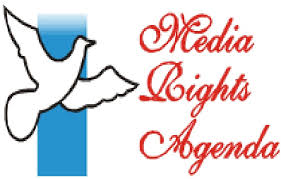By Jacob Ajakaiye, in Kano
Media Rights Agenda (MRA) will host a two-day sensitization and training workshop for lawyers from across Nigeria on March 5 and 6, 2019 to enhance their effectiveness in litigating Freedom of Information (FOI) and Freedom of Expression (FOE) cases on behalf of media organisations and journalists. It will take place in Kaduna.
Announcing the workshop in a statement in Lagos, MRA’s Legal Officer, Chioma Nwaodike, said: “The aim of the workshop is to sensitize lawyers about the FOI Act and the need for a larger number of them to provide legal and litigation assistance to the media community to ensure that they are able to fulfill their constitutional responsibility to the society while also seeking to improve the effectiveness of participating lawyers in litigating freedom of information and freedom of expression cases on behalf of media organizations and journalists.”
She explained that in the light of the fact that the enforcement mechanism provided in the FOI Act is for persons who are denied access to information to apply to a court for a review of such denial, “it is quite clear that lawyers are indispensable in ensuring the effective implementation of the Law and that it is only through their active involvement and engagement that those aspects of the Law which are still unclear would be fully clarified.”
Nwaodike stated that it was for this reason that MRA decided to engage with lawyers involved or interested in litigating freedom of information cases on behalf of media organisations and journalists on pro bono basis in order to offer them a comprehensive understanding of the substantive and procedural issues involved in such cases.
Explaining the reason for the focus on lawyers litigating on behalf of media organisations and journalists, she said: “Under Section 22 of the Constitution, the Media have the responsibility of holding the government accountable to the citizens and the Media can play this role much more effectively by using the FOI Act to target certain types of information, which can help the media to reveal corruption, abuse of power, and other wrongdoings. Consequently, it is of great importance that the media have improved access to information so that they can in turn aid citizen engagement and improve accountability.”
According to Nwaodike, “There is no doubt that the media and media practitioners deal in information more than any other sector of society or that the media and journalists frequently act on behalf of the wider society when they go to seek information from public institutions or other entities or individuals. Allied to this is the fact that access to information, media freedom and freedom of expression are mutually supportive and necessary for the free flow of information to the public, which underpins our democratic system of government.”
She stressed that “information is the lifeblood of any media organization as the media assumes the role of providing information to citizens and the public in general on issues such as government policies and actions. The media can only flourish in this role if access to information is guaranteed.”
Nwaodike called on journalists and media organizations in need of legal assistance to enforce their access to information or freedom of expression rights in relation to their professional activities to contact the organization for support.
The workshop, which is supported by the Open Society Initiative for West Africa (OSIWA), will have about 40 participants drawn from different States across Nigeria, with most of them coming from Lagos and Abuja.









